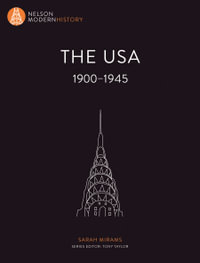Decolonisation has been developed especially for senior secondary students of History and is part of the Nelson Modern History series. Each book in the series is based on the understanding that History is an interpretive study of the past by which you also come to better appreciate the making of the modern world. Decolonisation is the term used to describe the process of the breakup of empires and the establishment, or re-establishment, of nation states. After 1945, the European imperial powers, such as France, the United Kingdom, Belgium and the Netherlands, responded to the demands of their colonial subjects for independence. The nature of the demands for independence ranged from peaceful agitation and negotiation, as in British India, to bloody and protracted wars, as in French Indochina. Regardless of the path to independence, the outcome was the establishment of dozens of new nation states in Africa and Asia after the Second World War. This transformation is most clearly illustrated in the membership of the United Nations. Formed in 1945 with 51 member nations, drawn mainly from Europe and the Americas, by 1970 the United Nations??? membership had more than doubled to include 127 countries. Most of these new members were recently decolonised nations in Africa and Asia. Developing understandings of the past and present in senior History extends on the skills you learnt in earlier years. As senior students you will use historical skills, including research, evaluation, synthesis, analysis and communication, and the historical concepts, such as evidence, continuity and change, cause and effect, significance, empathy, perspectives and contestability, to understand and interpret societies from the past. The activities and tasks in Decolonisation have been written to ensure that you develop the skills and attributes you need in senior History subjects.
















